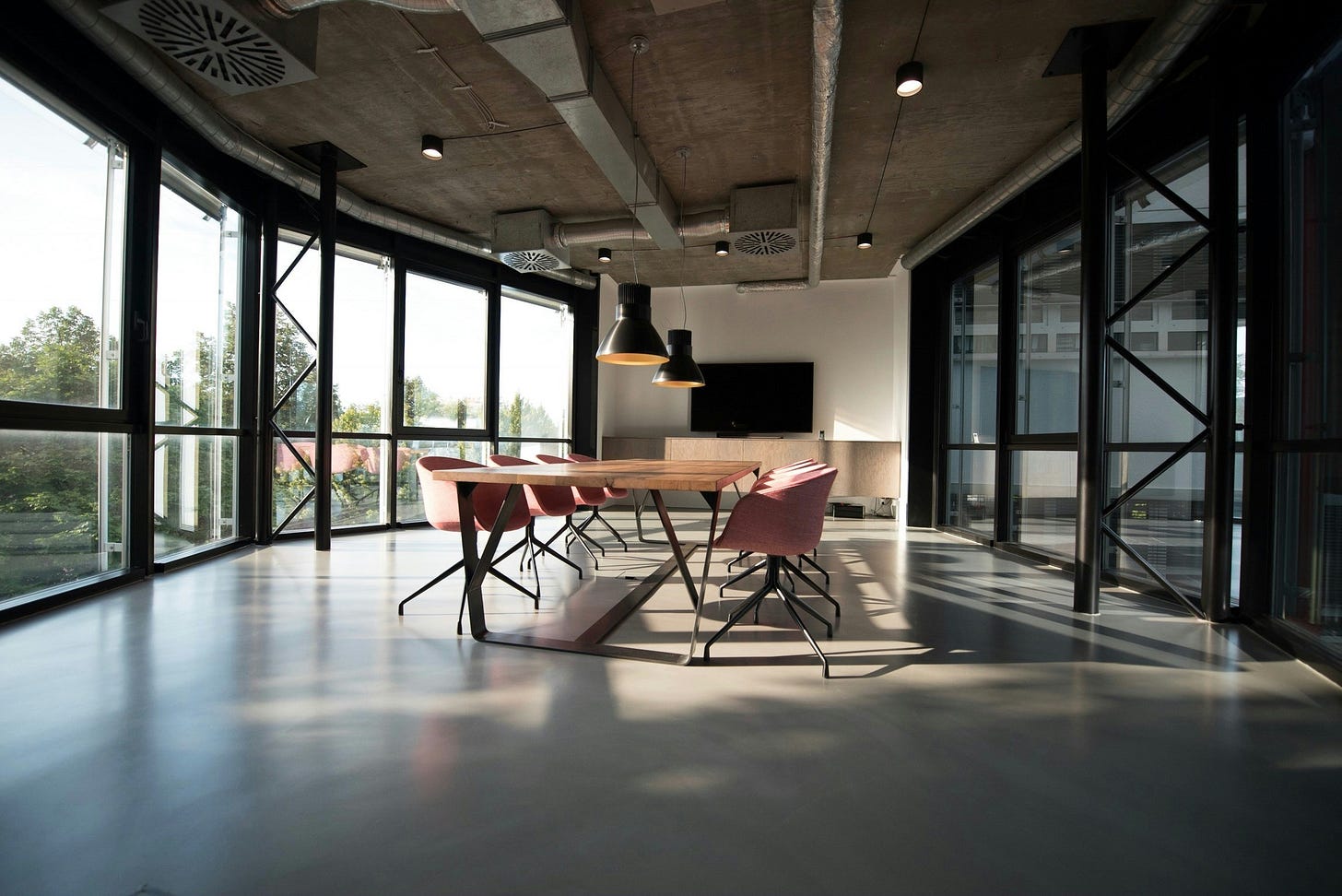How the ‘Furniture as a Service’ Model is Bringing Circularity to the Office Furnishing Industry
The furniture as a service subscription model isn’t just an attempt to piggypack on the subscription economy train. It's a service which can genuinely benefit end users - and the environment
Renting or buying a new office space was once a long term decision.
As companies used to be able to plan in decades, not years, it made sense to invest in big office spaces, often in top locations to attract the best talent. As a result, companies had a sustainable approach to buying office furniture: they’d buy good quality desks, tables, chairs and lights - and it would last them decades.
Today, the situation looks much different.
From start ups nervously eying their next funding round, to established Dax 100s struggling to entice employees back to the office post Covid - companies today have to operate in entirely more uncertain waters.
This new normal means that companies often cancel their office space contracts after a couple of years, leaving a big question mark over the future of the expensive furniture and lighting that they bought to populate it.
Shockingly, more often than not, most of it goes straight to landfill.
In fact, 100 million tonnes of furniture are thrown away each year in the EU. And currently, only 30% of it is recycled.
Surely companies must be rushing to find solutions against such colossal wasteful practices?
Actually, not really. While manufacturers and office furniture specialists might market themselves as masters of sustainable practices, in reality, sales targets get in the way of whatever idealistic sustainability mission statements they give themselves. Understandably, there’s little place for a circular economy in a business model which places emphasis upon selling new products.
There are, however, a couple of glimmers of hope out there.
Novu Office, a young company from the outskirts of Zurich, and Copenhagen-based Nornorm are two office furnishing specialists single-handedly kick-starting a circular approach to the highly inefficient and wasteful office furnishing economy.
Both companies are putting circularity at the very core of their ‘furniture as a service’ subscription business models, and, I’m pleased to say, they’re ruffling a few feathers while doing so.
Addressing the fact that modern day companies - including Co-working spaces - have to deal with uncertainties with regards to the length of their office tenures, their concept is simple: don’t buy furniture & lighting, rent it - or lease it - and give it back when you’re done.
In practice, this means that a company could plan their new office space with purely reconditioned furniture (Novu’s so-called 2nd life furniture), or opt for a combination of 2nd life and new pieces.

This approach of reintegrating furniture into the ecosystem is both innovative and refreshingly different. With as many customers utilising the items as possible, the usual negative ecological effects of office throwaway goods are minimised.
From the client's perspective, such an arrangement offers several clear benefits. Firstly, the hefty upfront costs for furniture and lighting are avoided. Instead, they can opt for a monthly leasing sum, which pales in comparison to the expenses of purchasing new furniture outright. And best of all, big ticket items can be acquired without huge investment.
Additionally, should the client no longer require the furniture after a couple of years, they needn't fret about finding a buyer for used items or face the dilemma of disposal.
Thanks to furniture subscription plans offered by the likes of Novu Office and Nornorm, we’re finally seeing that the circular economy might just be a thing after all.
The only question that remains is this: how much more furniture has to be needlessly thrown away before this becomes the standard for the office furnishing industry?




